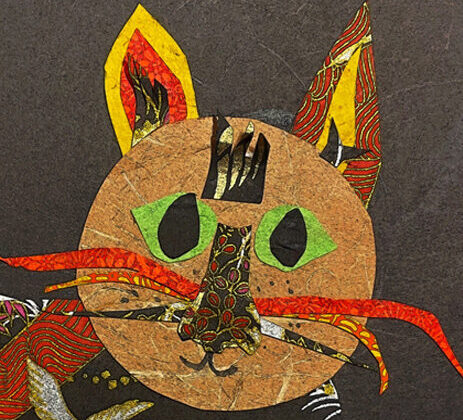Gary LeBel
Kerosene
‘For [the poet] alone, everything is empty.’
~ Charles Baudelaire, Crowds
On leaving the station
A light jingle of keys is opening
Door after door
Letting the New World look
Into the eyes of the Old
Chasing its lunar shadow across an unbroken plane of snow, the train rolls east out
of Zurich. Mountains rise up as if to touch the stars of a clear December night. My
elementary German is useless here in this railcar where only a Slavic tongue is
spoken. I have no idea where I am except that I’m surrounded by older men in
their late-twenties or early thirties.
Their swarthy, mustachioed faces are drawn up lean and taut like leather from
outdoor work. Though their darting eyes are alert and hungry, their hulking frames
seem tired and weary for men so young. Their thick chapped hands and drab
woolen sportscoats betray a laboring life in various European ports and capitals.
No doubt this ragtag stitch of language, faith and calluses is traveling home for
Christmas.
They stare at me through obsidian eyes while speaking low in a language that
sounds at first like a scuff of gravel. As the train presses on through the night, each
rail-length is tallied, and I am the strange accountant, the odd man out.
Then one of them offers me the plain, twist-necked bottle half full of a dark
yellowish liquid they’ve been sharing. They’re testing me, and I’m reluctant at first
to take it until I read my hesitation’s insult on their faces.
With a face-saving nod, I grin and take the bottle. Without wiping its lip, I swill
down something that tastes closer to kerosene than liquor. Reading my puckered
face, the fair-haired one that passed it breaks into a huge laugh that nearly closes
his eyes; then he turns, says something remarkably soft and chuckles warmly, kindling a wave of laughter in the rest. With cigarettes lit, all tensions wane, as
shapeless as the smoke.
With no language between us
Save a stinging belt
Of homemade booze
The glaring cabin-lights etch fresh translations
On dark-eyed faces
While the clunking, rhythmic knocks of the rail-butts accrue, the men talk quietly
among themselves and look occasionally at me as the houselights of Swiss villages
come and go
. . . and come and go . . . with no mention of Michelangelo.
Hätte ich gewusst
Nach zwanzig was ich in sechzig
Gelernt habe,
Was für eine Schande verschwendet haben
Meine besten Fehler
Would I have known
After twenty what I've learned
In sixty,
What a shame to have wasted
My best mistakes
Notes: A nod to T.S. Eliot’s “The Love Song of J. Alfred Prufrock” AND a bit of a theft of Sheryl Crow’s “My Favorite Mistake.”
About the Author

Gary LeBel is an artist-poet living in the greater Atlanta area whose poems have appeared in journals throughout the USA, the UK, Japan, and India. He believes that art, or anything else worth doing, is a life-long pilgrimage.
